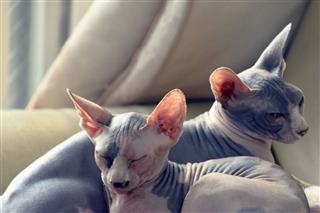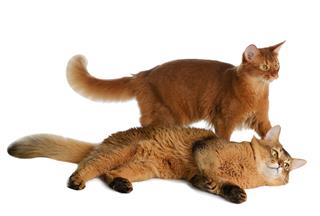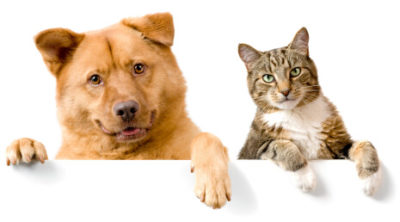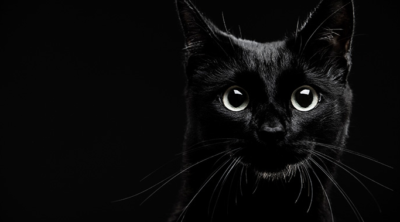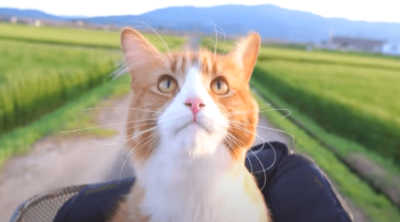
Constipation, meaning difficulty defecating, is relatively common in cats. Home remedies such as switching to a high-fiber diet often work to resolve this health issue.
Did You Know?
Olive oil, a natural laxative can help treat cat constipation. For usage, simply mix a tablespoon of olive oil in your cat’s kibble.
When your cat faces difficulty in passing stool, it may indicate constipation. In constipation, the stools become hard, forcing your cat to strain during bowel movement. Before seeking prescription treatment for your pet, you can always try some simple home remedies that work to treat cat constipation. They are discussed below:
High-fiber Diet
Diet is critical to control and prevent constipation in cats. Your pet straining while passing stools is an indication of lack of fiber in its diet. Fiber attracts water in the gastrointestinal tract, which makes the stools softer and bulkier. As a result, the stools formed pass easily during bowel movement. Hence, ensuring adequate fiber in your cat’s diet is the key to restore normal bowel movements.
One of the best ways to up your cat’s fiber intake is to include pumpkin in its diet. You can use canned pumpkin as it is a puree allowing you to easily add it to your cat’s diet. You can simply combine the puree with the cat food to increase the fiber intake.
Powdered psyllium and ground flaxseed are also good sources of fiber. So you can also feed your pet with these food products in small amounts in order to regulate its bowel movement. You can also include wheat or oat bran in your cat’s diet as it adds bulk to the stools.
Water
Inadequate water intake could be another reason why your cat is feeling constipated. So, make sure your cat is drinking enough water throughout the day. Also, feed your cat with wet canned food to increase moisture content in its diet.
Milk
Although feeding milk is not a good option as a remedy for diarrhea, it can be helpful to relieve cat constipation. Just feed 1/8th cup of milk twice daily and you will soon notice that your pet is not straining to have bowel movement.
Petroleum Jelly
Yes, the petroleum jelly that we apply externally to moisturize the skin, can actually be fed to cats to treat constipation. Oral intake of petroleum jelly in cats is completely safe, provided it is given in moderation. The daily dose of petroleum jelly to treat constipation in cats varies from 1/3rd to 1/2 a teaspoon. Although it can be given orally, avoid giving it along with meals. Petroleum jelly, though effective in relieving cat constipation, should be used as a short-term treatment only. Its internal usage can interfere with nutrient absorption. Hence it should not be used frequently or for a long term.
Exercise
Just like humans, cats also need exercise. It is observed that sedentary cats are prone to a wide range of health problems including constipation. So, keeping your pet active can certainly help alleviate and prevent episodes of constipation.
If none of the home remedies work, you need to immediately contact your veterinarian for further treatment. Your vet may prescribe certain probiotic supplements that have been specifically formulated for cats to improve digestion and treat constipation.
On the whole, finding out the underlying cause is the key to treat cat constipation. Many times, cats eat bones of their prey or unknowingly consume foreign substances such as sand and hair, which may harden in the gastrointestinal tract and cause difficulty in bowel movements. Thus, when home remedies fail to provide any relief to your pet, it is an indication of a serious underlying cause that requires urgent medical attention.
Disclaimer: The information provided in this article is solely for educating the reader. It is not intended to be a substitute for the advice of a veterinarian.
